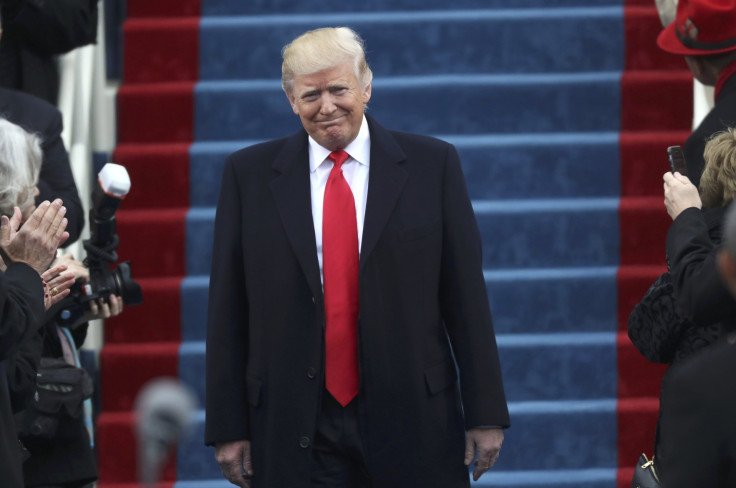Who Is The Oldest President? Donald Trump's Age At Inauguration Gives Him Title From Reagan

Donald Trump was sworn into office Friday to become not just arguably the most unlikely president in United States history, but also the oldest. At 70 years and 220 days, Trump is the first president ever to assume office in his eighth decade and is almost a year older than Ronald Reagan when he became president in 1981.
The many political contrasts between the incoming and outgoing presidents in terms of their politics have been widely explored, but Trump has also diverged sharply from his predecessor Barack Obama in terms of age. At 47, Obama was the fifth-youngest when he first entered the White House in 2009, older only than Ulysses S. Grant, Bill Clinton, John F. Kennedy and the youngest ever to take office, Theodore Roosevelt, who was just 42 at the time of his inauguration.
At the other end of the age scale, Trump leads a list of oldest presidents that features Reagan just ahead of ninth President William Henry Harrison. Harrison would die just 31 days after his inauguration and another president to take office in his 60s, Zachary Taylor, also passed away before completing his full term.
According to a 1992 book, “The Mortal Presidency: Illness and Anguish in the White House,” the presidency can have a detrimental effect on an individual’s lifespan. Author Robert Gilbert found that 21 of the 32 presidents died prematurely, even excluding the four who were assassinated while in office.
Donald Trump will be the oldest person inaugurated as #POTUS (1st term). https://t.co/lHcJDQguRX pic.twitter.com/BR9lMNjhuS
— Presidential Trivia (@triviapotus) November 9, 2016
Trump went on “The Dr. Oz Show” in September to disclose his health records and talk up the state of his health. He also escaped much of the attention that was focused on his opponent Hillary Clinton’s health during the campaign. However, his predecessor as the oldest president in history, Reagan, has been the subject of much debate as to whether his battle with Alzheimer’s disease began while he was in office.
“I think the main thing is that the future is a lot less predictable when you’re 70 than when you’re 40 or 50,” Steve Austad, scientific director of the American Federation for Aging Research told the Washington Post about Trump this week. “He could be fine 10 years after his presidency, or he could be in bad shape a year from now.”
© Copyright IBTimes 2024. All rights reserved.











